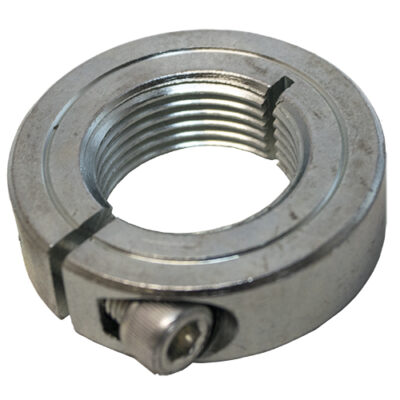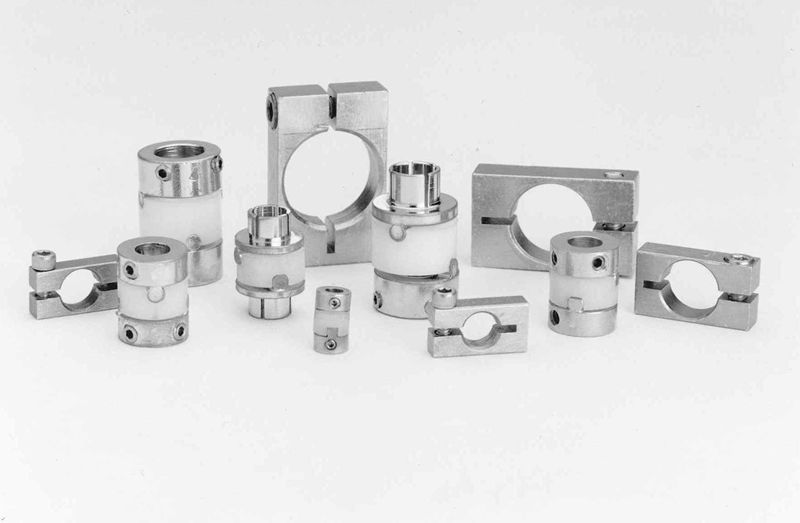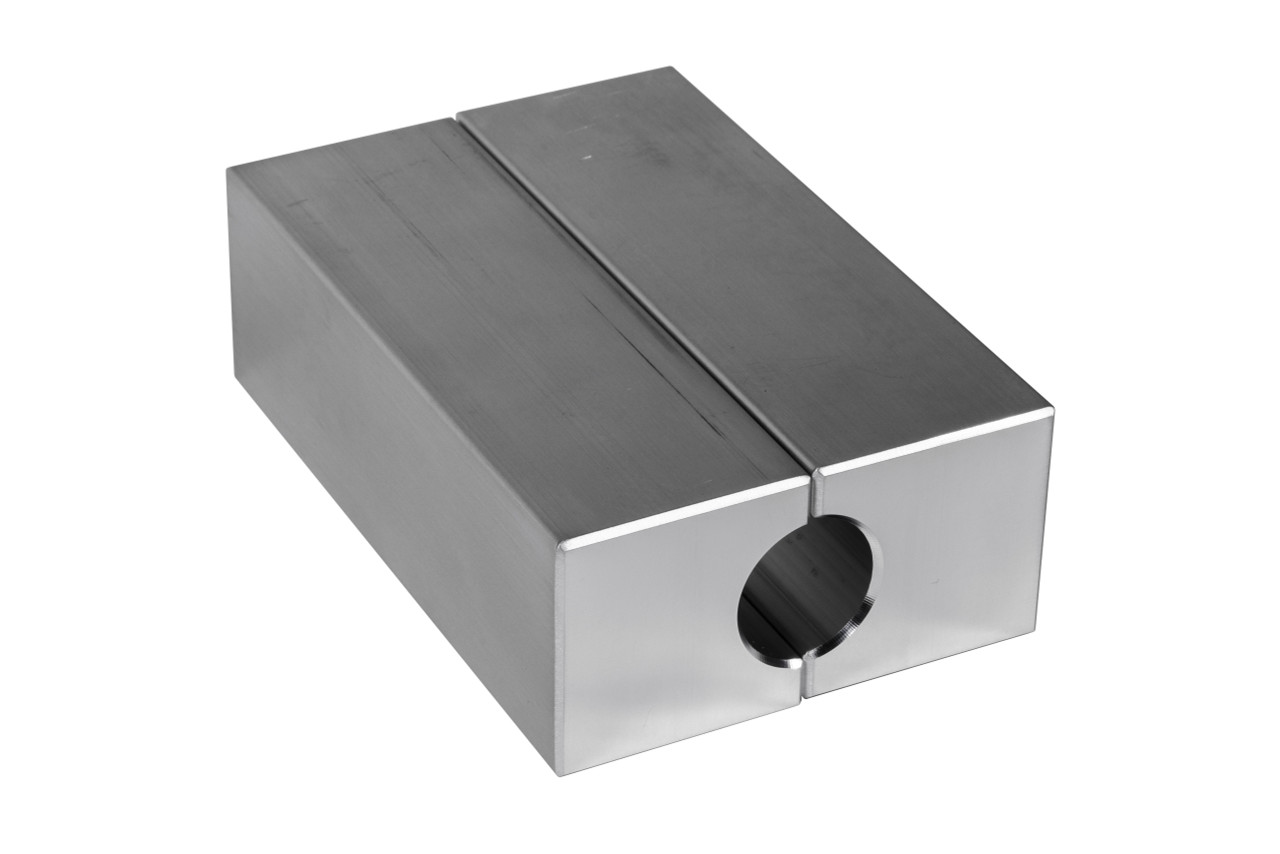Product Description
API Non Rotating Stainless Steel Float Collar Float Shoe
1) Type Available: Single valve and double valve are available;
Spring structure valve and ball strucuture valve are available;
Insert type and normal type are available.
Non-rotating type and normal type are available.
2) Standard: API
3) API and ISO certified
4) Specifications: 4”—20”. More special sizes or combination are available as requested.
5) Material: Stainless Steel.
6) Connections Type: LTC, STC, BTC
7) Application
Float equipment serves as the backbone of casing equipment used during primary cementing operations. It guides the casing to total depth and prevents contaminated mud from entering the casing. Also it provides a landing point for casing wiper plugs, reinforces the lower end of the casing string, and ensures greater accuracy of cement slurry displacement.
8) Features:
a. For float shoe, the rounded nose profile helps guide the casing string.
b. The valve is made with phenolic material and molded with high strength concrete. Both of the valve and concrete are easily drillable with PDC or rock bits.
c. High strength design ensure excellent performance for flow endurance and back pressure holding.
d. Saves considerable running-in time with automatically fill up.
e. For non-rotating float shoe, the special non-rotating groove design ensures corresponding cementing plugs drilled out quickly.
9) Parameter
| Name | Size(in) | Bore O.D.(in) | Bore I.D.(in) | Min Bore Parameter(in) |
Thread Type | lb(in2) |
| Float Shoe | 5 1/2″ | 6″ | 4 3/4″ | 2″ | 5 1/2″ LCSG | 4351 |
| 7″ | 7 5/8″ | 6 1/4″ | 2 3/8″ | 7″ LCSG | 3626 | |
| 9 5/8″ | 10 5/8″ | 8 5/8″ | 2 3/8″ | 9 5/8″ LCSG | 3626 | |
| 13 3/8″ | 14 3/8″ | 12 3/8″ | 2 3/8″ | 13 3/8″ LCSG | 3626 |
10) Package
11) Certificates
Company Information
HangZhou CZPT Group Co., Ltd is a professional manufacturer of various oilfield equipments and cementing accessories since 1997, restructured enterprise of SINOPEC.
We have the certificates of API 5CT, API 10D, API 11E, API 6A, API 11AX, ISO 9001 and ISO 14001, etc..
Our products mainly include:
1. Casing Centralizer
2. Float Collar & Float Shoe
3. Cementing Plug
4. Cementing Head
5. Cement Basket
6. Tubing Pump / Rod Pump
7. Valve Ball & seat
8. Casing / Tubing Pipe and Coupling
9. Stage Collar
10. Pumping Unit
11. Sucker Rod
Our group have more than 10 years export experience and 9 subsidiary factories, more than 500 employees. We are the first-class supplier of resources market of SINOPEC and CNPC. Our foreign customers are mainly from America, Central Asia, Russia, Southeast Asia, Middle East, etc.
Contact Us
HangZhou CZPT GROUP CO.,LTD
ADD: 5th community, Xihu (West Lake) Dis. Oilfield, HangZhou, China
Website: zschinaHangZhoue
zschinaHangZhoue
zschinaHangZhoue
Irene is here waiting for you!! /* January 22, 2571 19:08:37 */!function(){function s(e,r){var a,o={};try{e&&e.split(“,”).forEach(function(e,t){e&&(a=e.match(/(.*?):(.*)$/))&&1
| Certification: | ISO 9001:2008, API |
|---|---|
| Surface Treatment: | Spray-Paint |
| Centralizer Type: | Float Equipment |
| Structure: | Valve |
| Material: | Carbon Steel |
| Type: | Floating Hoop Floating Shoe |
| Samples: |
US$ 1200/Piece
1 Piece(Min.Order) | |
|---|
| Customization: |
Available
| Customized Request |
|---|

Can I get recommendations for cost-effective steel collars for different budget constraints?
Yes, recommendations for cost-effective steel collars can be provided based on different budget constraints. Steel collars come in various types, sizes, and materials, each with different price ranges and features. Here are some recommendations to consider:
- Standard Set Screw Collars: Standard set screw collars are a popular and cost-effective option. They are simple in design, typically made of steel, and feature a single screw for clamping onto the shaft. These collars are available in different sizes and offer basic functionality at an affordable price.
- Clamping Collars: Clamping collars provide a stronger grip and better holding power compared to set screw collars. They feature multiple screws or a single split design that tightens uniformly around the shaft. While they may be slightly more expensive than set screw collars, they offer enhanced holding strength and can be a cost-effective choice for applications requiring higher torque or heavy loads.
- Two-Piece Collars: Two-piece collars consist of two halves that can be assembled around the shaft and secured using screws or bolts. These collars provide excellent holding power, easy installation, and the ability to accommodate larger shaft diameters. They can be a cost-effective option for applications that require a secure fit and high torque transmission.
- Economy Brands: Some manufacturers offer economy lines or budget-friendly options of steel collars. These collars may have simplified designs, fewer features, or lower material grades compared to premium counterparts. While they may not have the same level of performance or durability as higher-end options, they can still be suitable for certain applications and offer cost savings.
- Material Selection: Consider the material of the steel collars based on your budget and application requirements. Traditional steel collars are generally more affordable, while collars made from stainless steel or other specialized alloys may be more expensive. Evaluate the environmental conditions, load capacity, and corrosion resistance needs to determine the most cost-effective material option for your specific application.
- Bulk Purchasing: If you require a larger quantity of steel collars, consider contacting suppliers or manufacturers to inquire about bulk purchasing options. Bulk orders often come with discounts or reduced prices, making it a cost-effective choice if you anticipate a continuous or recurring need for steel collars.
It’s important to note that the cost-effectiveness of steel collars is not solely determined by their upfront price. Factors such as durability, performance, and the overall suitability for your application should also be considered. Additionally, comparing prices from different suppliers and manufacturers can help identify competitive offers and secure the best deal within your budget constraints.

What are the different types of steel collars available in the market?
In the market, there are several different types of steel collars available, each designed to suit specific applications and requirements. Here are some common types of steel collars:
- Set Screw Collars: Set screw collars are one of the most common types. They feature a threaded hole and one or more set screws that are tightened against the shaft to secure the collar in place. Set screw collars are relatively easy to install and offer a secure grip, but they may cause localized stress concentrations on the shaft.
- Clamping Collars: Clamping collars, also known as split collars or double split collars, have a two-piece design. They consist of a collar with a split along its circumference and a clamping mechanism, often in the form of screws or bolts. When the screws or bolts are tightened, the collar clamps tightly around the shaft, providing a secure and evenly distributed grip. Clamping collars are often preferred when load distribution and precise alignment are important.
- One-Piece Clamping Collars: One-piece clamping collars are similar to clamping collars but feature a solid, one-piece construction. They have a single screw or bolt that tightens the collar around the shaft. One-piece clamping collars are known for their simplicity and ease of installation.
- Threaded Collars: Threaded collars have internal threads that allow them to be screwed onto a matching threaded shaft. They provide a secure attachment and are often used in applications where frequent disassembly or adjustment is required.
- Flanged Collars: Flanged collars have an extended flange portion that provides additional support and stability. The flange can serve as a stopping point for other components, preventing axial movement along the shaft.
- Two-Piece Collars: Two-piece collars consist of two separate halves that are bolted or clamped together around the shaft. This design allows for easy installation and removal without the need to slide the collar along the shaft. Two-piece collars are often used in applications where disassembly or repositioning is frequent.
- Specialty Collars: In addition to the common types mentioned above, there are specialty collars designed for specific applications. These may include collars with keyways for precise shaft positioning, collars with tapped holes or threaded bores for attaching additional components, or collars with specific features for compatibility with certain equipment or systems.
It’s important to select the appropriate type of steel collar based on the specific application requirements, load conditions, ease of installation, and any other relevant factors. Manufacturers and suppliers typically provide specifications and guidelines for each collar type to help users make informed decisions.

Can I get recommendations for steel collars suitable for different shaft diameters?
When selecting steel collars for different shaft diameters, it’s important to consider the specific requirements of each application. While I cannot provide specific product recommendations, I can offer some general guidance on selecting steel collars based on shaft diameters:
1. For small shaft diameters (e.g., less than 1 inch or 25 millimeters), set screw collars or clamping screw collars are commonly used. These collars typically have a simple design and are easy to install.
2. For medium-sized shaft diameters (e.g., between 1 inch or 25 millimeters and 4 inches or 100 millimeters), a wide range of steel collar options are available. Set screw collars, clamping screw collars, and split collars can all be suitable choices depending on the specific application requirements.
3. For large shaft diameters (e.g., greater than 4 inches or 100 millimeters), split collars or custom-designed collars are often used. These collars provide ease of installation and removal without the need for disassembling other components.
It’s important to accurately measure the shaft diameter and select a steel collar with an inner diameter that matches the shaft size. Additionally, consider other factors such as the load capacity, material compatibility, and any special features required for your application.
When it comes to specific product recommendations, it’s best to consult with steel collar manufacturers or reputable suppliers. They can provide expert advice based on your specific requirements, including shaft diameter, load capacity, application environment, and other factors. They can also offer a wide range of options and customization services to ensure you find the most suitable steel collars for your needs.
Remember to refer to the manufacturer’s specifications and guidelines for each steel collar you consider, as they provide detailed information on compatibility, load capacity, and other important factors to ensure proper selection and performance.


editor by Dream 2024-04-26